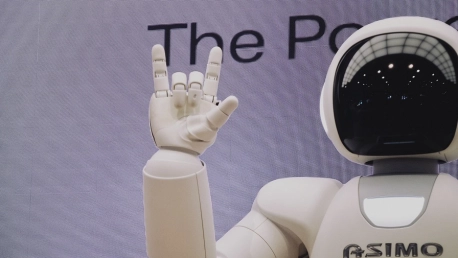More than two years have passed since the beginning of the global healthcare crisis that grew to become a disruptive force in most industries around the world. HR is no exception, and many HR professionals already know that new technologies proved essential during the COVID-19 pandemic and beyond. However, when it comes to artificial intelligence (AI), opinions continue to differ. Will employees be replaced by AI in the near future? Could automation make human employees redundant in some sectors? How will it ethically evolve to encompass AI and other emerging technologies?
With AI now becoming more and more popular, more questions about its impact on the future workforce also seem to emerge. HR specialists and employees alike now wonder what jobs could become fully automated in the future, and what jobs AI is less likely to replace at any point in time. However, a key aspect of this technology is improving human skills, that is integrating AI technology in a way that can improve employee productivity for a business. In fact, this is probably the most important aspect of AI, because while it will probably not replace most jobs in the future, it could serve to make them better.
Could robots replace jobs in the future?
AI-enabled robots have already replaced numerous jobs in the US and abroad, with some estimates now topping around 400,000 factory jobs being replaced in America from 1990 to 2007, and another 2 million on the way. However, this is not necessarily a bad thing, nor should it cause panic among employees and HR managers. In theory, AI could free people from dangerous or repetitive tasks, so they can take on more intellectually stimulating responsibilities. This, in turn, can help businesses everywhere become more productive and provide their employees with higher salaries and better work conditions.
While jobs like customer support and data entry have already been replaced by chatbots and automated platforms, most creative and strategic jobs will remain fit only for human resources, albeit with some help from emerging technologies like AI. Because AI-powered robots are not equipped with strategic thinking, creativity, or empathy, they could, for instance, replace proofreaders, but not writers or editors. Likewise, AI could help scientists, but not fully replace them, and it definitely won’t replace psychologists in the near future, although it could help them become better at their job by making psychiatric treatments more data-based.
Great benefits or huge concerns?
AI is by no means the first technology to automate jobs, nor is it the first to be viewed as a menace by workers around the world. In fact, the Industrial Revolution is one of the most significant events in human history, yet some inventions developed at the time, like the spinning jenny, also replaced numerous workers and caused social unrest. With voices like Google CEO now saying AI is likely to become more profound than fire, electricity, or the internet for the future of humankind, it’s no surprise that this emerging technology is also causing numerous debates.
However, for HR managers everywhere, AI may prove a smart investment instead of being a great concern. Machine learning and AI are already helping numerous companies around the world become more productive, enjoy better GDP growth and improved performance. Moreover, AI systems are now used in most sectors to make the world a better place, including in diagnosing and grading cancer, building autonomous cars, and improving national defense. While some businesses are likely to only use AI to cut their budgets and reduce their staff, others will probably decide to profit from its technological advantages and use it to build a better future.
Looking to the future
Like any new technology, AI comes with multiple benefits and numerous concerns. While it will definitely replace human employees in some sectors, this emerging technology is actually more likely to enhance human skills than actually replace them. However, AI is also very likely to change job requirements for many future employees at some point, as they will probably need to become better at navigating through different apps and software. With voices now predicting AI will become a revolution similar to the discovery of fire, electricity, or the internet, it may be hard to predict precisely how one of the most influential innovations in history will ultimately reshape our future.









